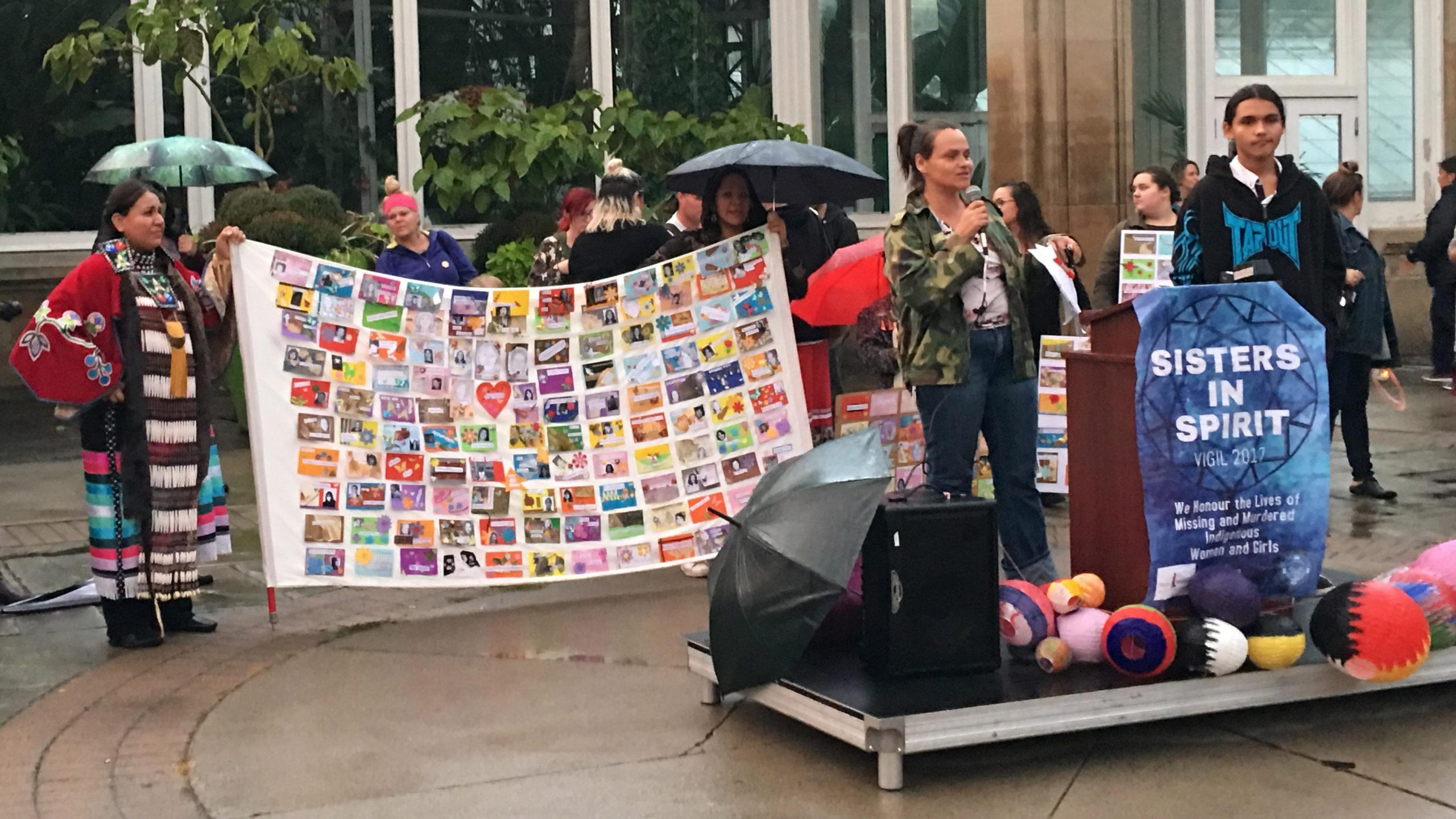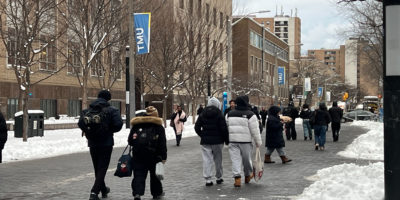By Tianna Reno
The evening opened with a welcome song and a minute of silence. People lit lanterns and handed out smudge kits with sage to burn. Community members were gathered to commemorate the families and lives of Missing and Murdered Indigenous Women (MMIW) at a vigil on Wednesday, Oct. 4.
The annual Sisters in Spirit Vigil was hosted by the Native Women’s Resource Centre Toronto (NWRCT) at Allan Gardens, as part of a nationwide event. The Ryerson Students’ Union (RSU) equity centres also participated in the event, including the Centre for Women and Trans People and the Racialised Students Collective.
The date commemorates the lives of the nearly 1,200 MMIW and represents a movement for social change.
Cyndy Baskin, a Ryerson associate professor in the school of social work, lost her daughter in May 2013. She said she believes in these vigils as they help Indigenous families voice their needs and “heal through their own sharing”.
Baskin is of Mi’kmaq and Celtic Nations of the Fish Clan and is known as the Woman Who Passes on the Teachings. She is also board president of the NWRCT. She questioned the transparency of the National Inquiry into MMIW and its role in integrating policing in their process.
“There is no focus on policing in this inquiry … we all are well aware that policing and the justice system has participated in this violence towards our women and girls,” Baskin said.
The National Inquiry into MMIW was launched in 2016 to examine and report on systemic causes of violence against Indigenous women and girls.
“How are we actually supposed to trust this process if we don’t know what’s going on,” she said.
Stephanie Latty, a PhD student in social justice education at the University of Toronto, attended the vigil as an ally.
Latty said she came to show her support because she believes events like these are not getting enough attention.
“I wish everybody in Toronto were here tonight to hold space … and more of a supportive role in these issues,” she said.
The number of Sisters In Spirit Vigils have increased from 11 in 2006 to 216 in 2014, and are still growing to date, according to the Native Women’s Association of Canada.
Denise Booth, an Indigenous and community engagement coordinator at the Toronto Birth Centre, lost her niece to violence. She said there were many allies from different backgrounds in attendance that evening, although that hasn’t always been the case.
“[Before,] the only faces staring back at me were Indigenous faces. There [weren’t] a lot of dominant cultures standing with us and it’s important they come out to this event.”
Booth said it’s important to honour all Indigenous people that have been taken away from their family. “Not just sisters, our trans and two-spirited people as well.”












Leave a Reply